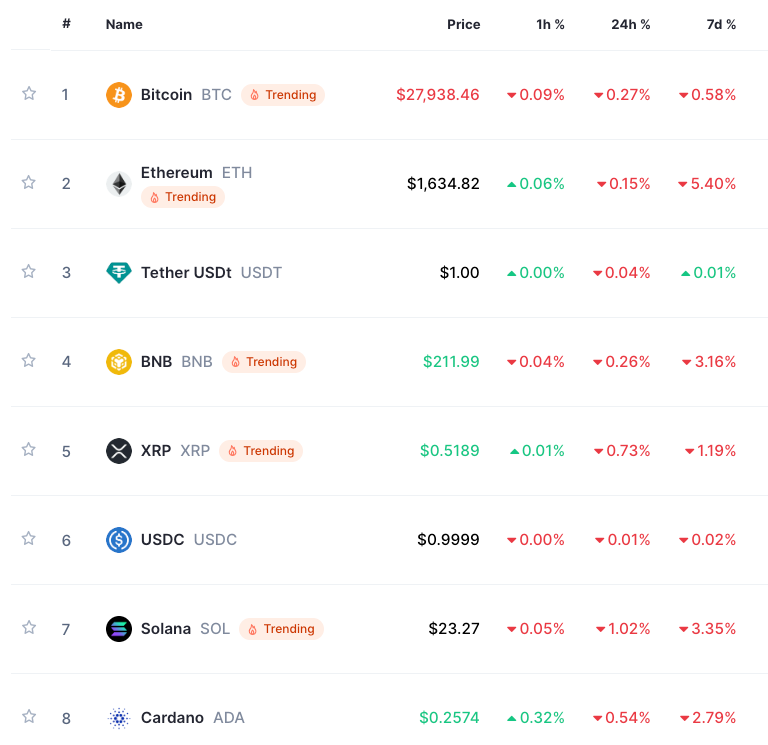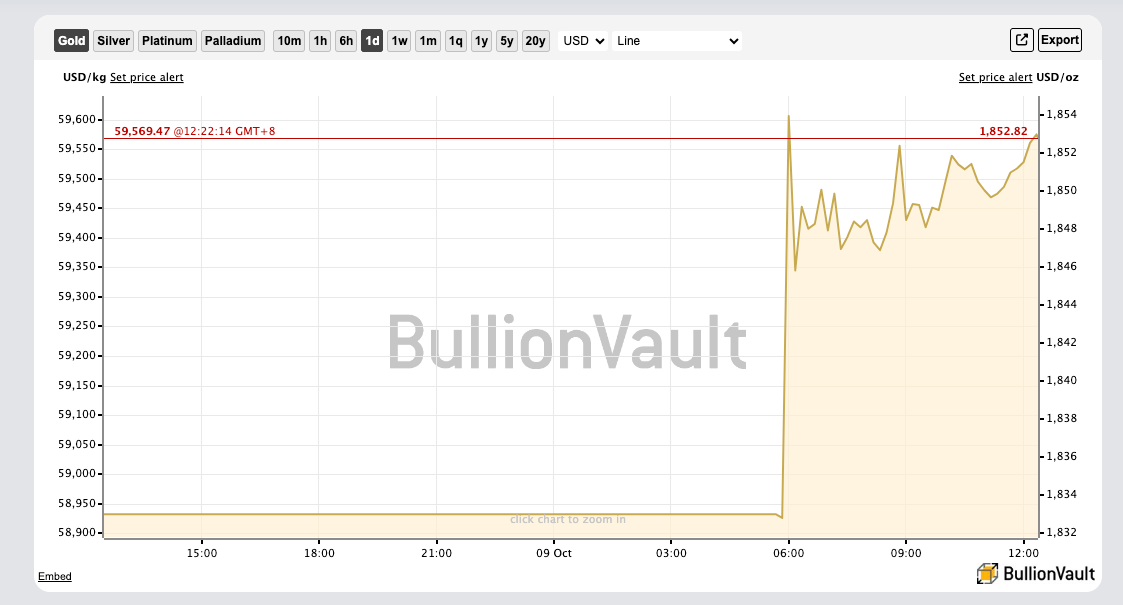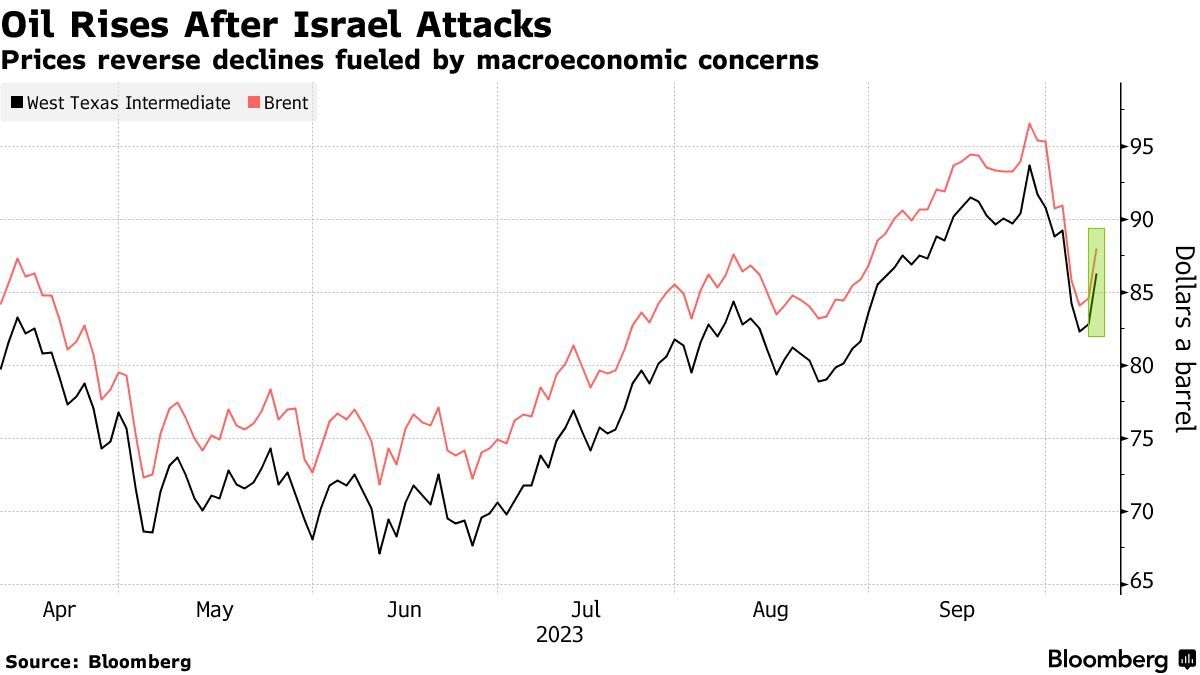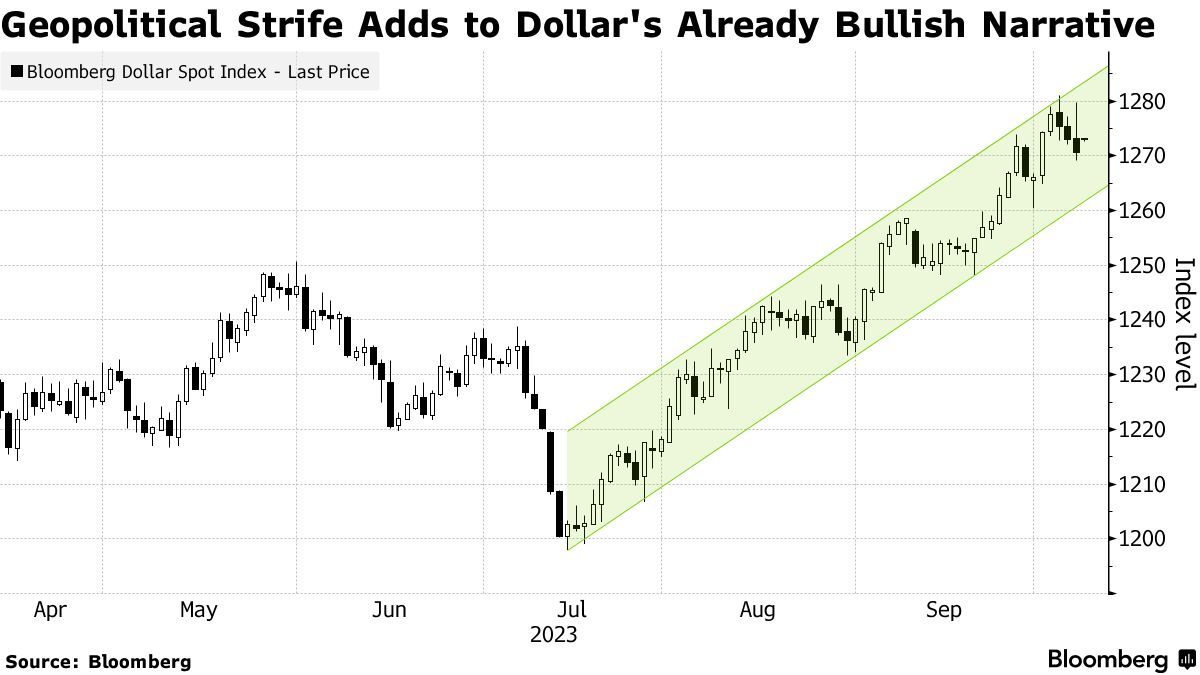Table of Contents
Unless you're an arms dealer, war is never good news. Countless lives are lost, economies shrink and humanity is at its lowest. And despite the timeless tale of Bitcoin being digital gold, we've reluctantly conceded that crypto is more of a risky asset than a safe haven asset.
Over the weekend, Hamas launched a deadly assault on Israel, resulting in the loss of over 1,000 lives and marking one of the biggest invasions on Israeli territory for 50 years.
Obviously, the real calamity here is the fatalities, which are sadly increasing by the hour. But as a digital assets-focused platform, it is still our duty to detail how this devastating war will impact the markets.
The presumption that Bitcoin can serve as a hedge against the markets is theoretically sound. Bitcoinist points towards Bitcoin's "decentralization and independence" and the "global scale" of cryptocurrencies.
"Cryptocurrencies are not controlled by any single government or entity, rendering them indifferent to the political turmoil in any particular region," Bitcoinist argues.
By glancing at the markets, it would seem that Bitcoin is displaying resilience, supporting the theory. The world's largest crypto has barely moved and the rest of its peers have performed likewise.

The Calm Before the Storm
As mentioned, we can no longer treat gold and Bitcoin in the same manner. Gold and oil prices have predictably jumped in response to the war.

ANZ Group Holdings Ltd. analysts Brian Martin and Daniel Hynes explained that whilst the war does not pose an immediate threat to the oil supply, any spread of the war could.
"Key for markets is whether the conflict remains contained or spreads to involve other regions, particularly Saudi Arabia,” the analysts said. “Initially at least, it seems markets will assume the situation will remain limited in scope, duration, and oil-price consequences. But higher volatility can be expected.”

The US Dollar also strengthened due to its less risky nature compared to other currencies.

However, USD's strength could be limited. Jason Wong, a currency strategist at the Bank of New Zealand explains, “The path of least resistance over the very short term is dollar strength on lower risk appetite, there’s a reasonable chance it fizzles out relatively quickly.”
It could be a similar story for Bitcoin's resilience too. Bitcoin fell over 10% in response to the Russia-Ukraine war. The New York Times cited crypto being "too difficult for normal people to use, especially during the war," Bitcoin being "too volatile to be useful as a hedge against economic and political instability" and a "surge of speculators who viewed Bitcoin and other cryptocurrencies mainly as investments and cared less about their political implications" for Bitcoin's poor performance. These factors continue to ring true.
Bitcoin Still Useful
Bitcoin might not be as resilient as gold and could suffer along with its risky asset peers. However, in times of turmoil, crypto still plays an important role. $212 million worth of crypto was donated to the pro-Ukrainian war effort. $80 million worth of crypto went directly to the Ukrainian government. Due to crypto's ubiquitous presence, its value can be transferred when traditional currencies fail.
Known as a "leader in crypto projects," Israel has been active in welcoming crypto into its economy and ecosystem too. The Bank of Israel is considering several options to increase the adoption of its central bank digital currency (CBDC), the digital shekel. Conversely, Hamas has banned fundraising via Bitcoin, citing the safety of its donors.
Gold might be the go-to asset during the war but Bitcoin still has more upside potential in the long run. On Monday, Matrixport issued a report stating "Bitcoin Is Better Than Digital Gold." Their thesis centres on Bitcoin’s market capitalization of $540bn being the equivalent to 10.8% of the market capitalisation of physical financial gold.
"This is why a potential approval by the SEC of a US-listed Bitcoin ETF could usher in a monumental inflow of $20-30bn, potentially driving a significant surge in Bitcoin prices," Matrixport states. If Bitcoin suffers at the mercy of the war, a lower entry point could be worth considering.
Whatever the case of Bitcoin might be, Blockhead's thoughts are sincerely with the victims, casualties and families, and we pray the bloodshed ends soon.
Elsewhere:
- Punk'd No More – Yuga Labs Slams on the Brakes: Just 18 months after bathing in a cool $450 million seed round, Yuga Labs—the genius hive behind CryptoPunks and BAYC—is cutting jobs faster than you can say "NFT". A restructuring rodeo or just a glitch in the crypto matrix? The layoffs affect the company's US-based team, while Yuga is "actively reviewing" its international teams, CEO Daniel Alegre said in a message to employees Friday. As part of the changes, the company will focus on Otherside, Yuga’s gamified metaverse, and focus on building long-term partnerships.
- Fee-nomenal Face-off – Ethereum vs. Tron: While there are around 200 smart contract/PoS blockchain, Ethereum and Tron control 88% of total transaction fees, with Ethereum leading at 57% and Tron at 31%, according to Bloomberg analyst Jamie Coutts. While Ethereum's surging fees have long been a bone of contention, Tron pitches itself as the low-cost contender. But, as crypto aficionados know, price isn't the only metric. In this bout of blockchain heavyweights, user base, trust, and technological heft matter more.
- Taiwan's Crypto Countdown: New Law Looming? Taiwan's gearing up to roll out some special crypto legislation by November's end. But will it be a blockchain boon or just more red tape? According to The Block, Taiwan's Legislative Yuan, hopes to officially propose the draft crypto act for first reading by the end of November, if not sooner. The new law would require all crypto platforms operating in Taiwan to apply for a permit. Taiwan's financial watchdog recently released guidelines for the crypto sector to form its own self-supervisory rules through a potential industry association, but these measures lack legal enforceability.
- Treasure or Token? US Treasuries Take a Digital Dive: The market for tokenized Real World Assets (RWAs) is heating up, and US Treasuries are joining the party with Coinbase's BASE platform. Issued by Switzerland-based tokenization firm Backed Finance, the blB01 token – a blockchain-based version of BlackRock's short-term U.S. Treasuries exchange-traded fund (ETF) – is the first RWA token issued on the BASE network. According to rwa.xyz, the tokenized treasuries market has grown sixfold this year to $666 million.








